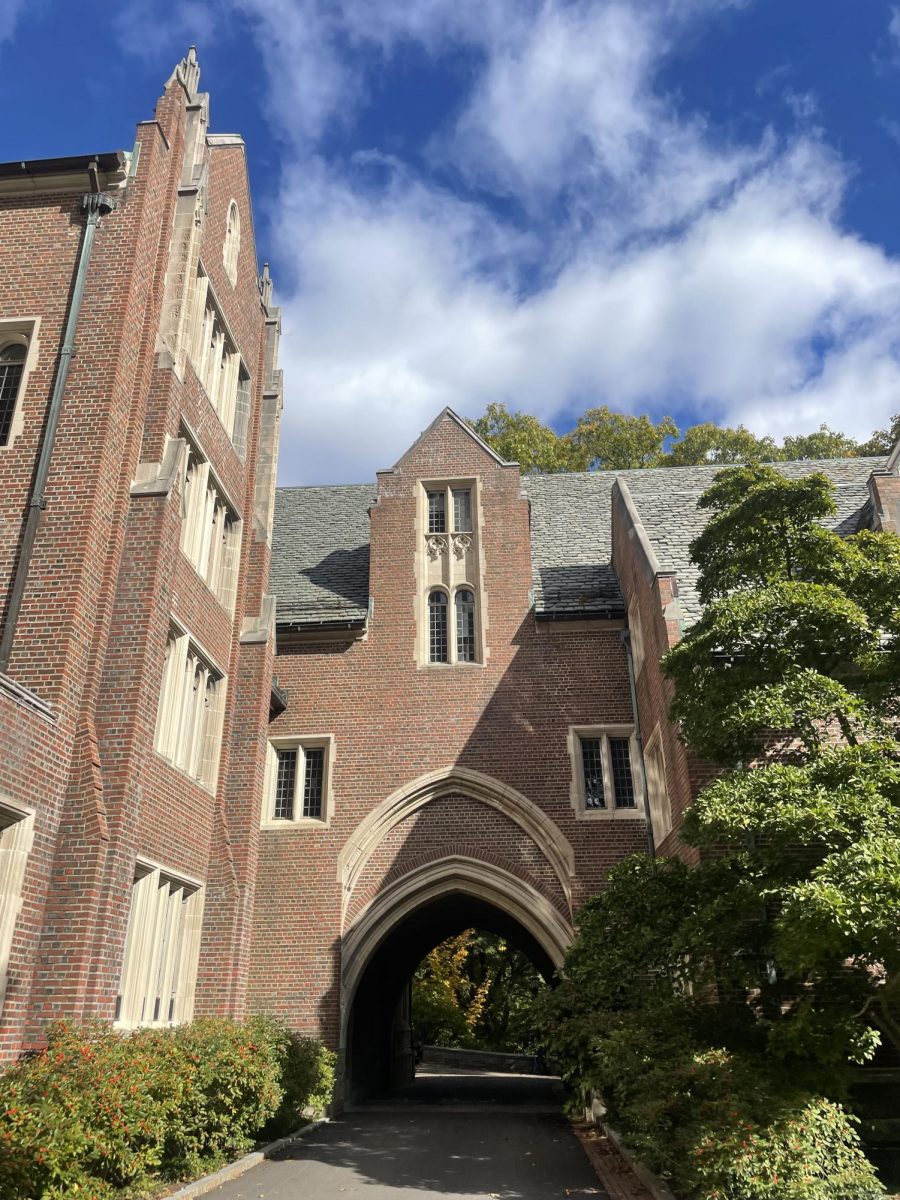On Feb. 23, the Wellesley Faculty for Justice in Palestine (FJP), announced their formation via Instagram post. Their website lists their statement in full, calling for Palestinian liberation and for the right to academic freedom, amidst nationwide turmoil on campuses as protests have erupted and rhetoric has inflamed amidst Israel’s war on Gaza. The Wellesley FJP is part of a growing national network of faculty organizations for Palestine. The statement also expressed support for students who were organizing.
“We express our solidarity with students who are organizing for Palestinian liberation and self-determination, and who are facing threats and attacks for their advocacy,” they wrote. “We support their right to not be subjected to harassment, intimidation and racist hate speech, because of their advocacy for Palestinian rights.”
Faculty first put out a statement in December, which circulated on social media via several student organizations, including Wellesley Al-Muslimat (ALM), the Arab Students Alliance at Wellesley (ASAL), the Wellesley Asian Alliance (WAA) and others. The Google doc was titled “Statement of concerned faculty on the right to express solidarity with Palestinians and Palestine and to express opposition to Zionism and the policies of the state of Israel.” The statement garnered support from students but swift backlash from administration — in particular, in an email from President Paula Johnson, who wrote, “The letter ignores how opinions and statements of the kind expressed in the letter can threaten the existence of Israel and increase fears for Jewish students on our campus.”
Despite the backlash to the letter, faculty organized to show their support for Palestine and for students who were organizing. Catia Confortini, Professor of Peace and Justice Studies and a member of Wellesley FJP, spoke about the goals of the organization.
“We [wanted] to do something more concrete, that we could establish a presence that would support students and that would stand for the right to speak on an urgent political and moral issue and to take a stand, and support students,” she said. “The one thing we tried to do [previously] was the teach-in on Oct. 26. It was an initiative started by faculty and then it was taken over and regulated by administration.”
Wendy* was heartened by the formation of the FJP because she had noted the silence from faculty before.
“From what I’ve experienced and what my friends have experienced, faculty has been on the whole really silent and I think that’s been confusing and frustrating for students because it doesn’t feel like the campus community on the faculty level has been very supportive thus far,” she said. “I know that in the few cases that faculty have spoken out they faced a lot of repercussions from administration but also from fellow students.”
Confortini echoed this concern, and noted that the reluctance to speak about Palestine at all was for fear of losing job security, for both tenured and non-tenure track faculty alike.
“At Wellesley, in general, it is difficult to talk about difficult topics,” she said. “Nevertheless, Palestine is still the exception because of the equation of anything that is critical of the state of Israel to antisemitism. I do know there is a Title VI investigation, and faculty have been called in about it.”
Both Wendy and Confortini also indicated surprise at the relative lack of protest and demonstrations from Wellesley students. Confortini specifically hoped that the FJP could show students that support is there from faculty on campus.
“We haven’t had a demonstration at Wellesley since last semester,” Confortini noted. “I think that our students suffer from the same kind of feeling that we’re being policed and shut down, and that we might be retaliated against.”
Wendy holds similar hopes for the FJP, in that it might make students feel safer speaking out, knowing that faculty are supporting them.
“It’s difficult to organize to begin — what platforms can we use that are safe? How do we keep each other safe? I feel like the absence [of protest] is related to all of the repercussions students have been experiencing,” she said. “I don’t really know the best way forward or the best way to bring people together so I think the FJP will be able to provide affirmation for students that organizing is okay and that we do have support on this campus because that’s been really lacking.”
*Student was given a pseudonym to maintain anonymity and protect her identity.




